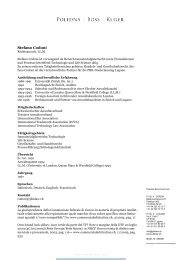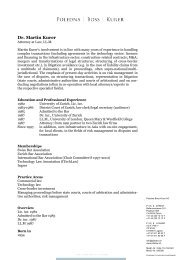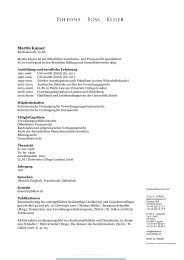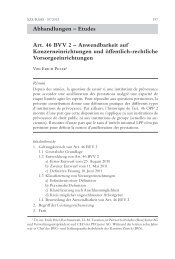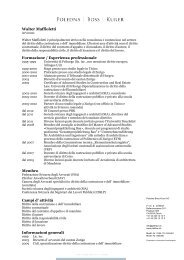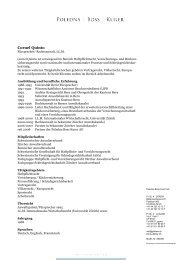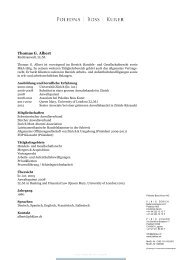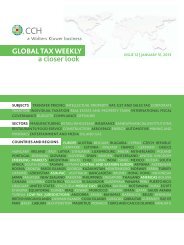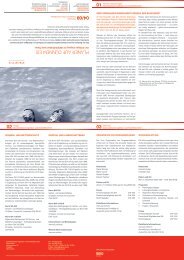climb-down over controversial proposals for a financialtransactions tax (FTT).The European Commission's plans for a 0.01 percenttax on derivatives and a 0.1 percent rate onother financial instruments are intended to enterinto force from January, 2014. At the start of thisyear, the European Council of Economic and FinancialAffairs (Ecofin) authorized Belgium, Germany,Estonia, Greece, Spain, France, Italy, Austria,Portugal, Slovenia, and Slovakia to progress with anFTT along the lines of the "enhanced cooperation"procedure, which enables those states wishing towork more closely together to do so.According to Reuters, which claims to have spokento Brussels officials linked with the project, the levyon trading bonds and shares could fall from theoriginally outlined 0.1 percent to just 0.01 percent.The result would be a drop in the revenue generatedfrom EUR35bn to just EUR3.5bn.The timetable for implementation also looks set tochange. It is apparently likely that only shares willbe hit by the tax from next year, while bonds willcome under the regime from 2015, and derivativesat an unspecified later date.As one official put it, "The whole thing will have tobe changed quite a lot … It is not going to survivein its current form."Sandy Bhogal, Head of Tax at law firm MayerBrown International, believes it should come asno surprise that the EU has had to "scale back" itsproposals. They have come under fire from sourcesas far and wide as the outgoing head of the Bankof England, Mervyn King, the International CapitalMarkets Association, and the Global FinancialMarkets Association. Common themes of apprehensioninclude the likely extraterritorial impact,the increased costs for businesses and governments,and the potential adverse effects for the globaleconomy. Earlier this week, European Central bankexecutive board member Benoît Cœuré told the FinancialTimes of his desire to "ensure that the taxhas no negative impact on financial stability."As Bhogal explains, "The original proposals raisedlots of questions and concerns about the impact ofthe FTT on the cost of sovereign and corporate debt,liquidity in the EU and beyond and the potential relocationand displacement effect in the financial markets.In its proposed form, the FTT could also beviewed as being inconsistent with regulatory changeslike EMIR and the general direction of travel of theEU, particularly at a time when there is a need to encourageEU economic growth and competitiveness."A number of issues related to enforcement and thepractical problems associated with collecting FTTrevenue, also remain unsolved, Bhogal added. Withthis in mind, "the scaled back plans and step-bystepapproach may be more sensible."A spokeswoman for EU Tax Commissioner AlgirdasŠemeta commented: "Depending on the speedof progress from here, it is still feasible that thecommon FTT could be implemented in 2014, althoughJanuary 2014 is looking less likely."68
NEWS ROUND-UP: ENVIRONMENTAL TAXESISSUE 30 | JUNE 6, 2013European Commission RecommendsCar Tax For EstoniaEstonia has again dismissed a recommendationfrom the European Commission that the countryintroduce a car tax and/or higher excise duties onmotor fuels, as an environment incentive to improveenergy efficiency.complemented by more binding expenditure targets;better-targeted labor market policies; makingeducation and training more relevant to the labormarket; and local government reform to ensure thatthe whole population has access to services such aschild care, family support services, healthcare, education,and transport.Instead, according the Finance Ministry, the governmentintends to remain focused on existingmeasures, such as an electric car program. Whenthe EC recommended a vehicle tax last year, FinanceMinister Jürgen Ligi told the media thatthe government did not want to put extra burdenson car owners, and that to do so would be "regionallypainful."The EC's recommendation was published in adocument responding to Estonia's 2013 stabilityprogram for the period 2012-17 and the country's2013 national reform program. It forms one of fivecountry specific recommendations (CSRs) in relationto the EC's Europe 2020 strategy for growthand jobs.The EC notes that Estonia has made some progressin meeting CSRs for 2012, in particular by limitingthe budget deficit to 0.3 percent of GDP, but thatsome reforms efforts "appear insufficient." As wellas introducing the tax, the EC recommends implementingthe structural budget balance rule in theTreaty on Stability, Coordination and Governance,Brussels ChallengesBritish Yacht Fuel Tax BreaksTh e European Commission has formally requestedthat the United Kingdom amend its legislationto ensure that owners of private pleasure boats,such as luxury yachts, can no longer buy lowertaxed fuel intended for fishing boats, known inthe UK as "red diesel."Under European Union rules on fiscal marking forfuels, fuel benefiting from a reduced tax rate hasto be marked by colored dye. In the United Kingdom,red diesel – so-called as it is marked with reddye – attracts a duty rate up to 40 percent lowerand may be used only in the farming, fishing andforestry industries.EU rules stipulate however that while fishing vesselsmay benefit from fuel subject to a lower tax rate,private boats must use fuel subject to the standardrate. The UK was allowed to offer the concessionto pleasure boating until 2006 when a transitionalperiod ended.69
- Page 1 and 2:
GLOBAL TAX WEEKLYa closer lookISSUE
- Page 3 and 4:
GLOBAL TAX WEEKLYa closer lookISSUE
- Page 5 and 6:
FEATURED ARTICLESISSUE 30 | JUNE 6,
- Page 7 and 8:
taxation treaties concluded by Swit
- Page 9 and 10:
FEATURED ARTICLESISSUE 30 | JUNE 6,
- Page 11 and 12:
FEATURED ARTICLESISSUE 30 | JUNE 6,
- Page 13 and 14:
UK, its offshore dependencies, and
- Page 15 and 16:
financing and all forms of financia
- Page 17 and 18: Th e Government pointed out in part
- Page 19 and 20: Talks are now underway. The TIEA wi
- Page 21 and 22: through which they can clamber in o
- Page 23 and 24: fi nally, and most egregiously, the
- Page 25 and 26: office space, or own tangible asset
- Page 27 and 28: extended for 2 years in December 20
- Page 29 and 30: Financial transactions ( e.g. inter
- Page 31 and 32: OECD Section E - Redraft On Safe Ha
- Page 33 and 34: suggests that the following items m
- Page 35 and 36: FEATURED ARTICLESISSUE 30 | JUNE 6,
- Page 37 and 38: State Interest And IntangibleExpens
- Page 39 and 40: States generally define "intangible
- Page 41 and 42: Code Sec. 1563(controlledgroup)Stat
- Page 43 and 44: ConnecticutGeorgiaIllinoisIndianaRe
- Page 45 and 46: Rhode IslandTennesseeVirginiaWest V
- Page 47 and 48: Table 4. Comprehensive Income Tax T
- Page 49 and 50: include federal interest income, st
- Page 51 and 52: Recurring IssuesRestructuring of th
- Page 53 and 54: M&A. Nick has extensive experience
- Page 55 and 56: and consumers." As Germany and Chin
- Page 57 and 58: on many levels. The panel found tha
- Page 59 and 60: equirements placed on the states, i
- Page 61 and 62: NEWS ROUND-UP: COUNTRY FOCUS - ITAL
- Page 63 and 64: NEWS ROUND-UP: REAL ESTATE AND PROP
- Page 65 and 66: ates - such that, in 2014, the 4 pe
- Page 67: NEWS ROUND-UP: FTTISSUE 30 | JUNE 6
- Page 71 and 72: Finally, the Federal Council veheme
- Page 73 and 74: Singapore Plugs Benefits For SMEsOf
- Page 75 and 76: TAX TREATY ROUND-UPISSUE 30 | JUNE
- Page 77 and 78: CONFERENCE CALENDARISSUE 30 | JUNE
- Page 79 and 80: Key speakers: John Capasso (Alvarez
- Page 81 and 82: Key speakers: TBA6/27/2013 - 6/27/2
- Page 83 and 84: 6/14/2013 - 6/14/2013http://www.con
- Page 85 and 86: THE CYPRUS BAIL-OUT ANDFOREIGN CLIE
- Page 87 and 88: Chair: Jonathan Levy (Partner, Reyn
- Page 89 and 90: IN THE COURTSISSUE 30 | JUNE 6, 201
- Page 91 and 92: on including the profit from the do
- Page 93 and 94: deduct VAT as a result of incomplet
- Page 95 and 96: where the taxpayer had somehow offs
- Page 97 and 98: een paid in the destination State.
- Page 99 and 100: that Spain has gone its own way fir



